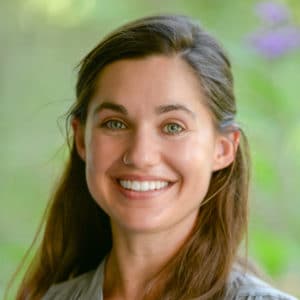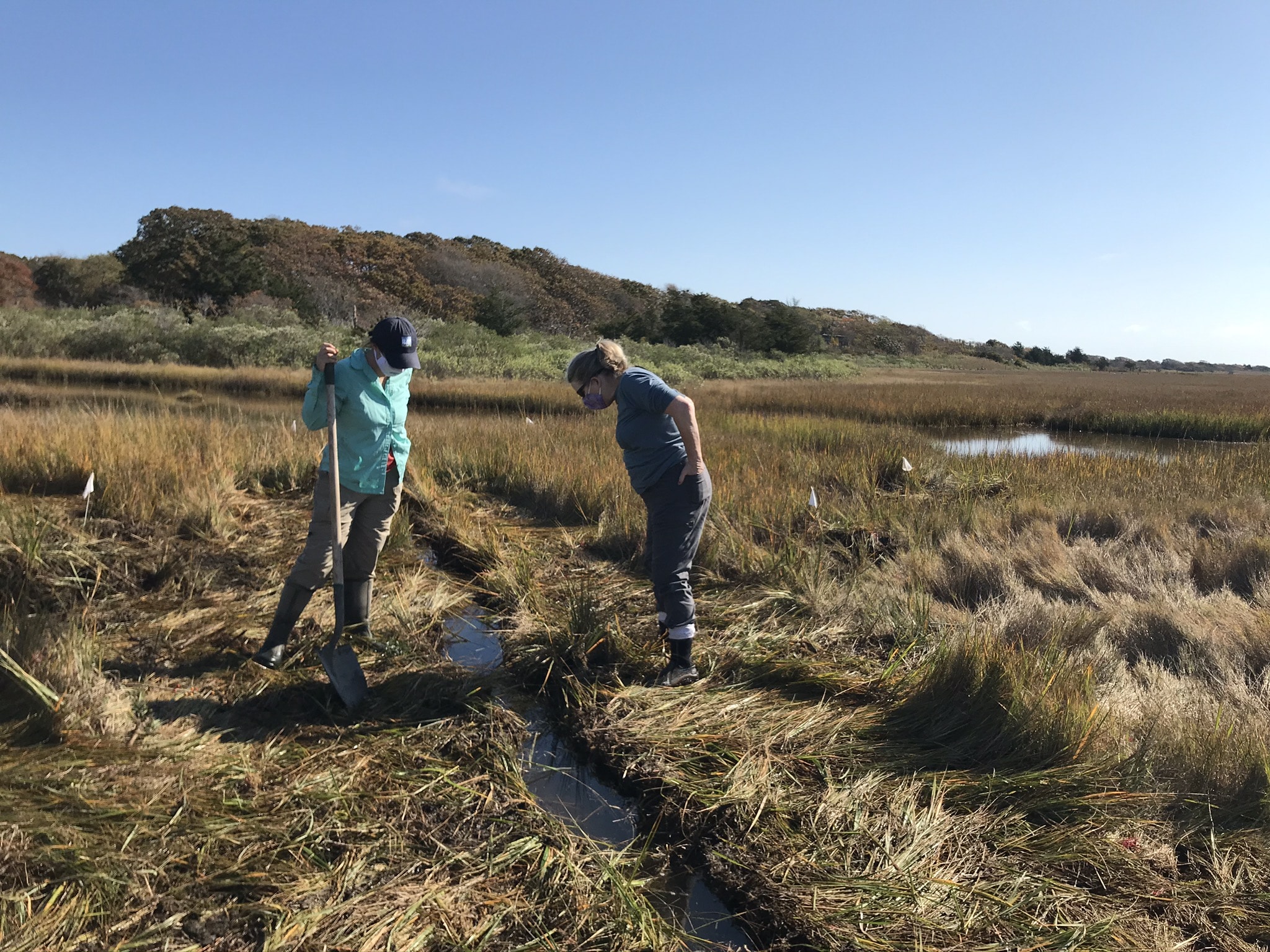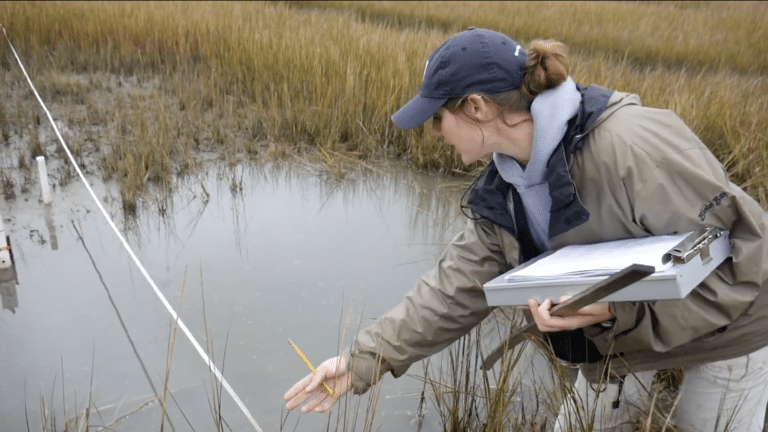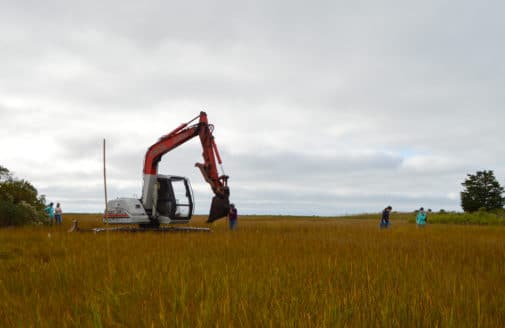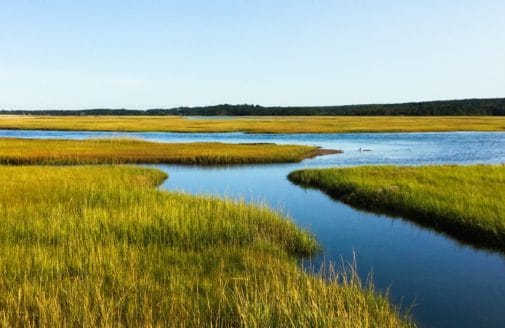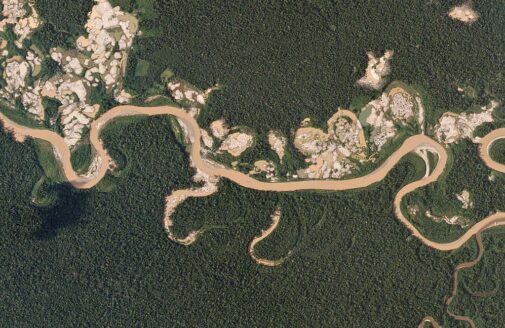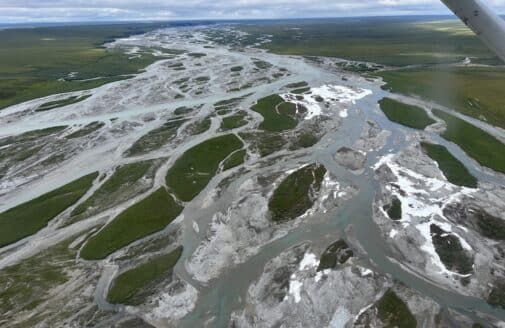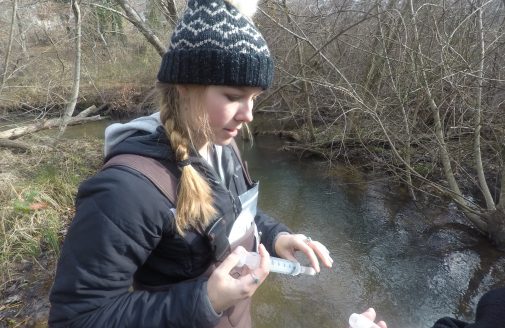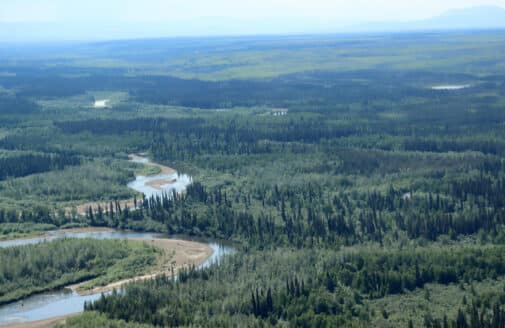Dr. Besterman completed a B.S. in Environmental Studies in 2013 at Virginia Commonwealth University, where she researched freshwater tidal wetlands and songbirds in these habitats. It was this research that sparked her interest in ecology and environmental science, specifically coastal systems and wetlands. She received her Ph.D. in Environmental Science with a concentration in Ecology from the University of Virginia in December 2019, focusing her research on the distribution and effects of an invasive macroalga on intertidal mudflats.
Dr. Besterman co-authored grant proposals on salt marsh loss and runnelling that received funding from the Southeast New England Program Watershed Grants, the Northeast Climate Adaptation Science Center, and the Rose Family Foundation. She organized a workshop including 70 experts and stakeholders in salt marsh ecosystems that discussed runnelling and was an invited speaker at Restore America’s Estuaries 2020 National Coastal and Estuarine Virtual Summit.
Dr. Besterman is driven to do socially relevant research while answering fundamental questions about coastal ecosystems. Her work on salt marshes—which act as habitats for wildlife, coastal defense, filters for water quality, and carbon stores—aims to help marshes adapt to and survive sea-level rise from climate change.
In her free time, Dr. Besterman is an avid birder—a passion that grew out of studying the Prothonotary Warbler as an undergraduate.




